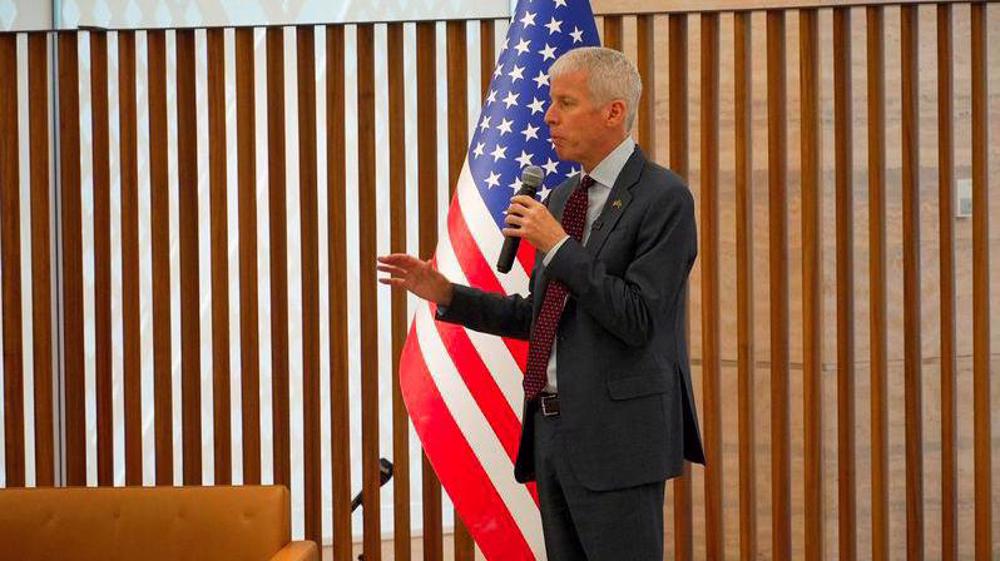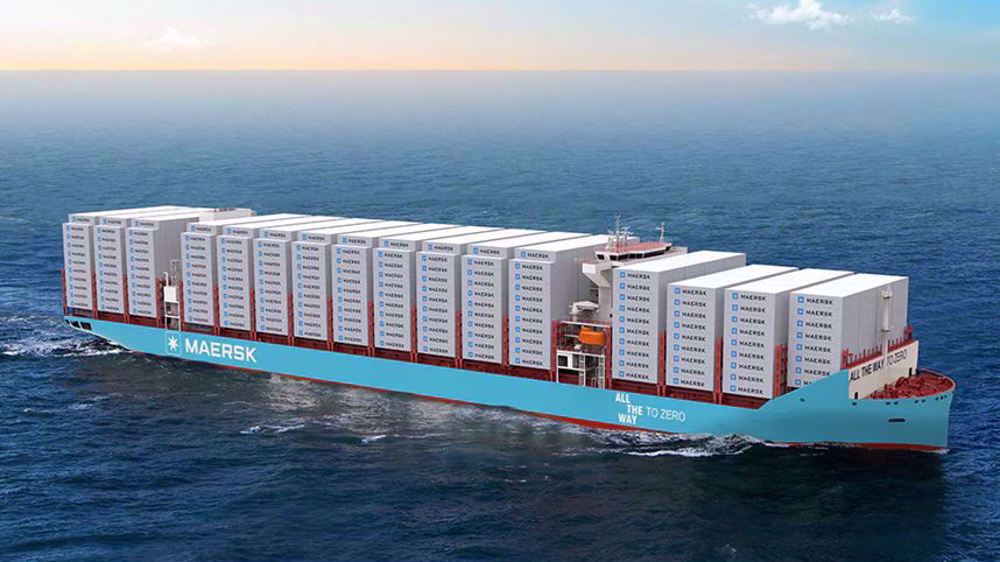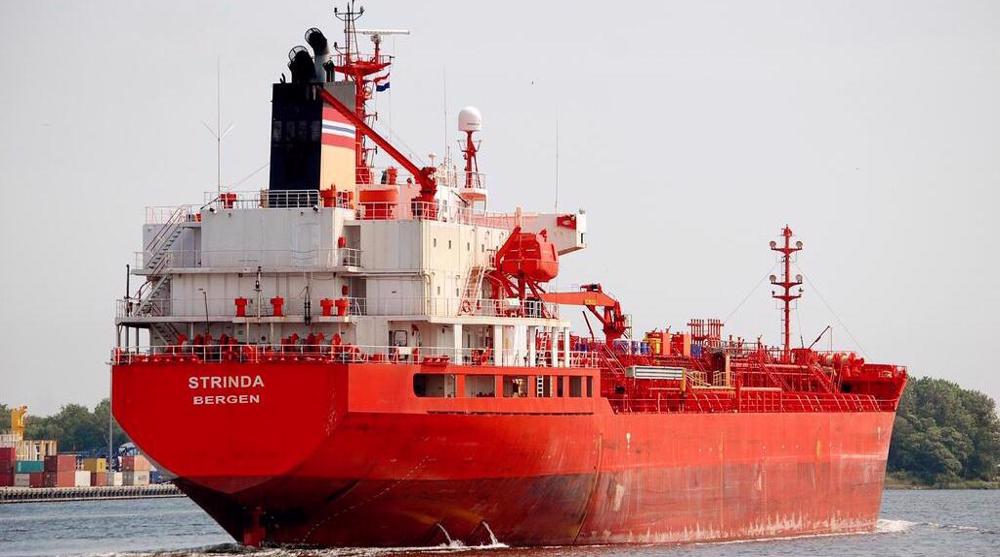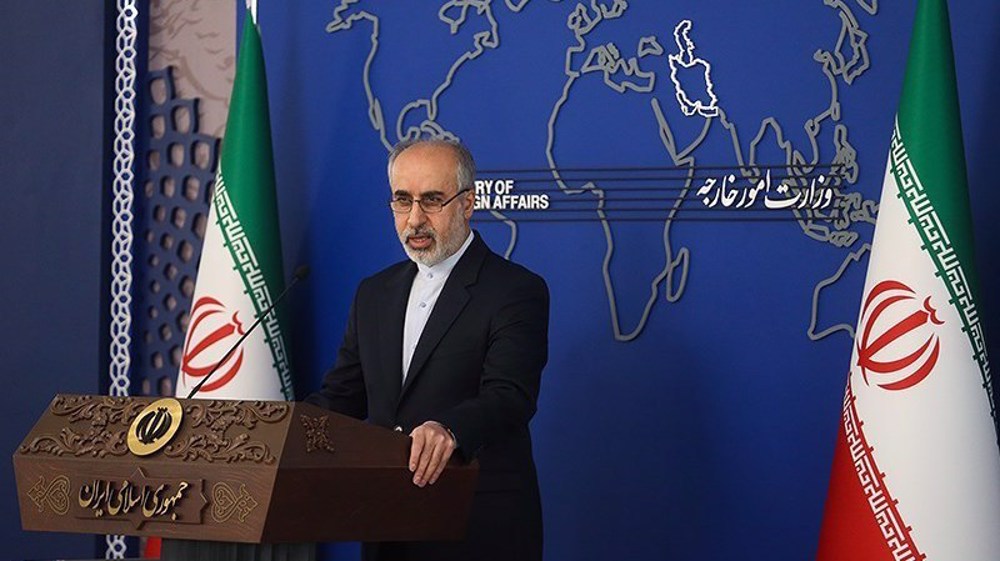Shipping giants suspend journeys through Red Sea as Saudis voice concern
Two major international shipping lines have suspended the transit of goods through the Red Sea as Saudis voice concern over the escalation of conflict in the Middle East.
Danish giant Maersk and German carrier Hapag-Lloyd temporarily suspended all journeys through the Red Sea on Friday.
The shipping companies claimed the decision to stop its ships came after a series of attacks on its vessels in the Bab al-Mandab strait.
Earlier this week, Yemeni Armed Forces claimed responsibility for a missile strike on a Norwegian-flagged tanker in the Red Sea as it was heading towards an Israeli port.
Speaking before the announcements by major carriers, Maersk and Hapag-Lloyd, to temporarily stop shipments, US national security adviser Jake Sullivan - who is on a trip to the Middle East - claimed that the Houthis in Yemen were threatening freedom of navigation in the Red Sea.
"The United States is working with the international community, with partners from the region and from all over the world to deal with this threat," he said.
The Yemenis, however, say they were simply exercising their rights to inspect the ships traveling through its waters, and it only shot on the ships after they ignored the radio messages.
"The recent attacks on commercial vessels in the area are alarming and pose a significant threat to the safety and security of seafarers," Denmark's Maersk, one of the world's biggest shipping companies, said in a statement run by media.
"Following the near-miss incident involving Maersk Gibraltar yesterday and yet another attack on a container vessel today, we have instructed all Maersk vessels in the area bound to pass through the Bab al-Mandab Strait to pause their journey until further notice," it added.
German carrier, Hapag-Lloyd, announced that it was making a similar move.
The Bab al-Mandab strait is a channel 32km wide, situated between Yemen on the Arabian Peninsula and Djibouti and Eritrea on the African coast.
It is the route by which ships can reach the Suez Canal from the south - itself a major shipping lane. Avoiding it means vessels must take much longer routes, for example navigating around southern Africa.
About 17,000 ships, some 10 percent of global trade, take this route every year. Any ship passing through Suez to or from the Indian Ocean has to pass this way.
At least two other cargo ships in the strait came under attack on Friday. The US says one was hit with a drone and another by missiles, blaming the Houthis for both attacks.
The Houthis did not confirm the drone strike but said they did fire at two boats.
Analysts are linking the Houthis latest measures in the Red Sea to the Israeli regime's continued genocidal war on the Palestinians in the Gaza Strip since the Oct. 7 operation of the Hamas resistance movement.
The anti-Israel Houthis of Yemen, who share similar views on many regional and international issues with the Islamic Republic of Iran, have an allegiance with Hamas.
Last month, the Houthis released video footage showing armed men dropping from a helicopter and seizing a cargo ship in the southern Red Sea.
Meanwhile, Saudi Arabia's Foreign Minister said on Friday that the conflict might escalate in the Middle East region.
Prince Faisal bin Farhan also pointed out that there was no need for further escalation of the situation in the region.
He told journalists in Oslo on Friday that he hopes a new resolution calling for a ceasefire in Gaza in the UN Security Council will get more support, "especially by the US who had previously vetoed the resolution."

Saudi Arabia, US to sign agreement on civil nuclear program: Energy secretary

Saudi Arabia calls for 'maximum pressure' on Israel as UN warns of ‘longest Gaza blockade’

Saudi police ‘detain’ female pilgrim for displaying Palestinian flag in Mecca
Yemen targets Tel Aviv, US aircraft carriers in pro-Gaza operations
UNRWA raises alarm over dire humanitarian crisis in Gaza amid Israeli blockade
China dismisses Ukraine's allegation of weapon supplies to Russia as 'groundless'
Death toll from US airstrikes on Yemen rises to 74
Iran: World must hold Israel accountable for mass murder, targeting children
Iran: Agreement with US within reach if Washington is realistic
Hayya: Hamas ready to hold talks for ‘comprehensive’ peace deal
Iran strongly condemns 'brutal' US airstrikes on Yemen’s fuel port










 This makes it easy to access the Press TV website
This makes it easy to access the Press TV website